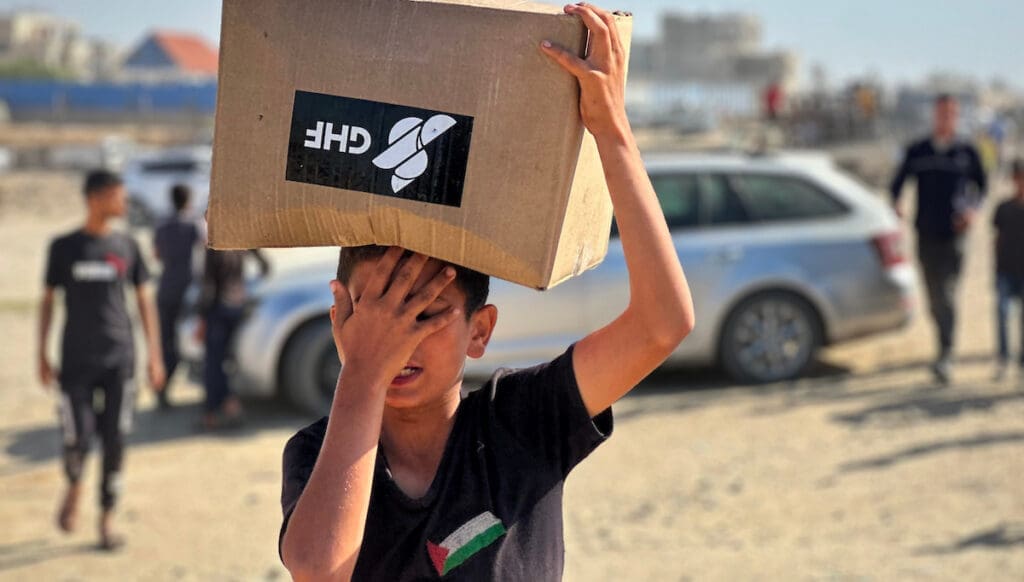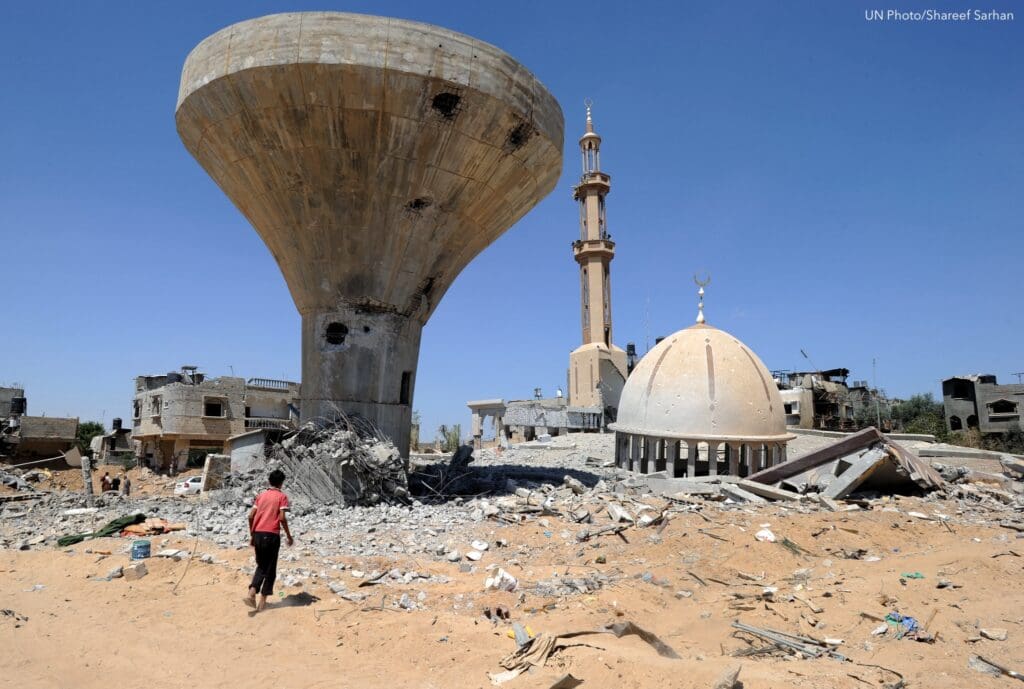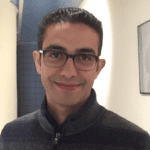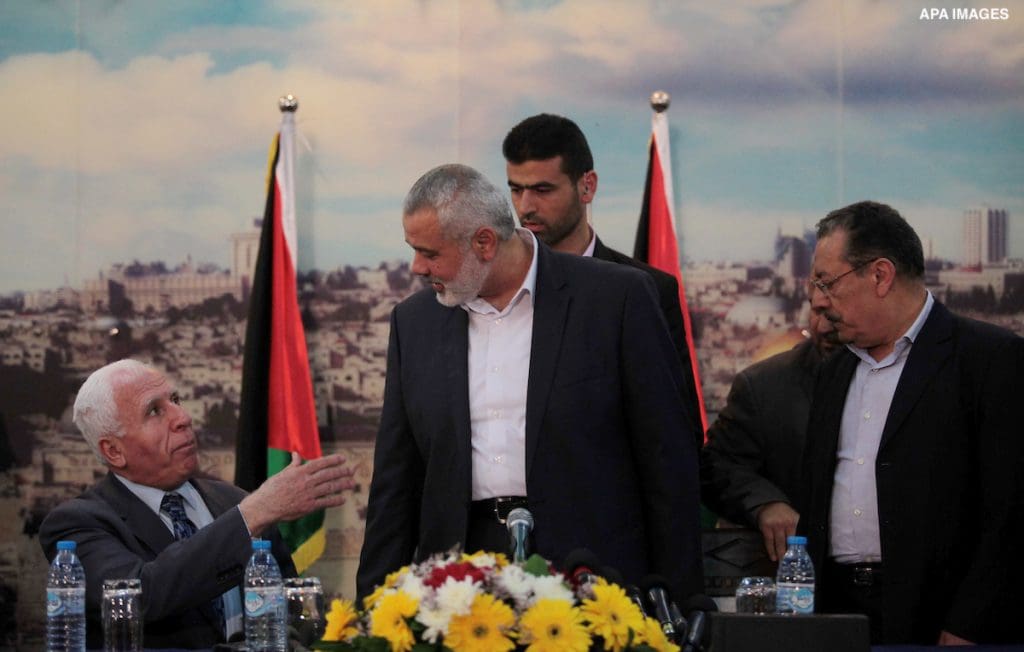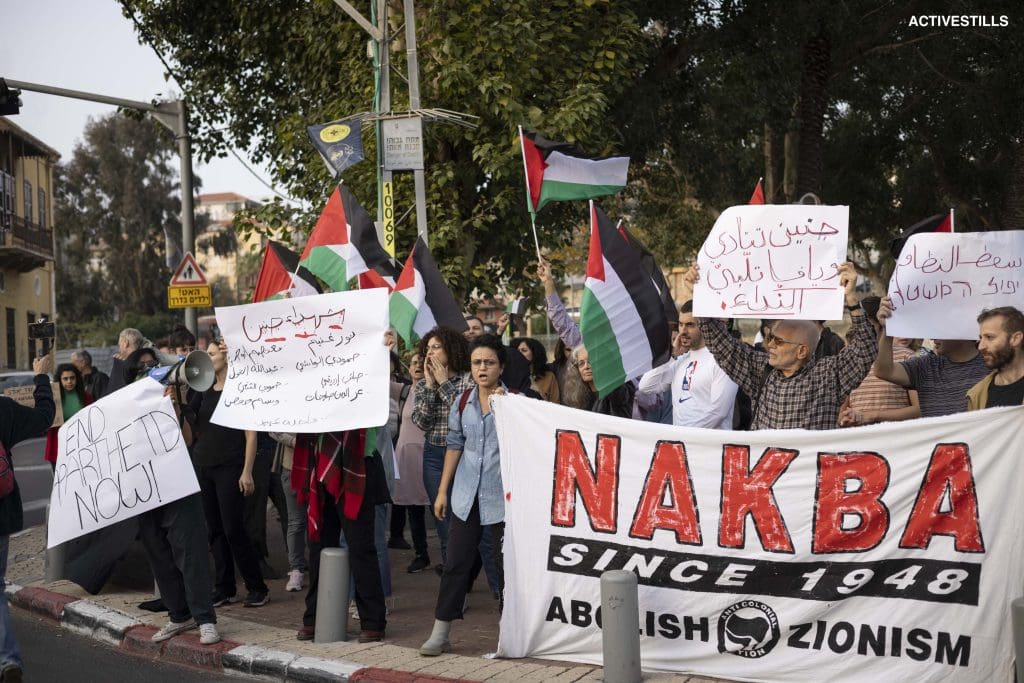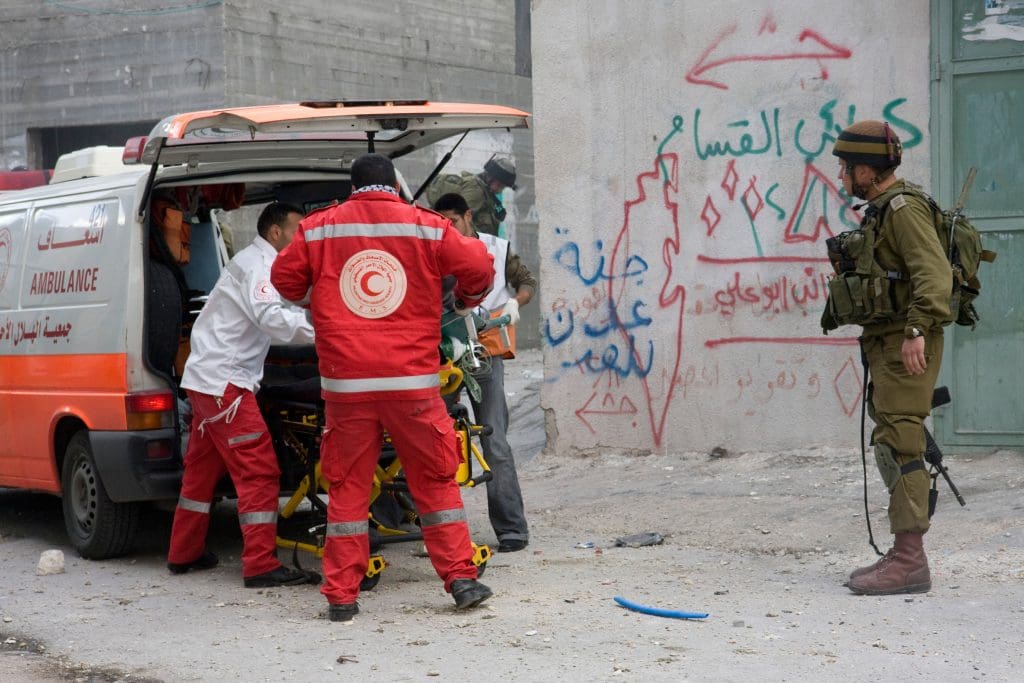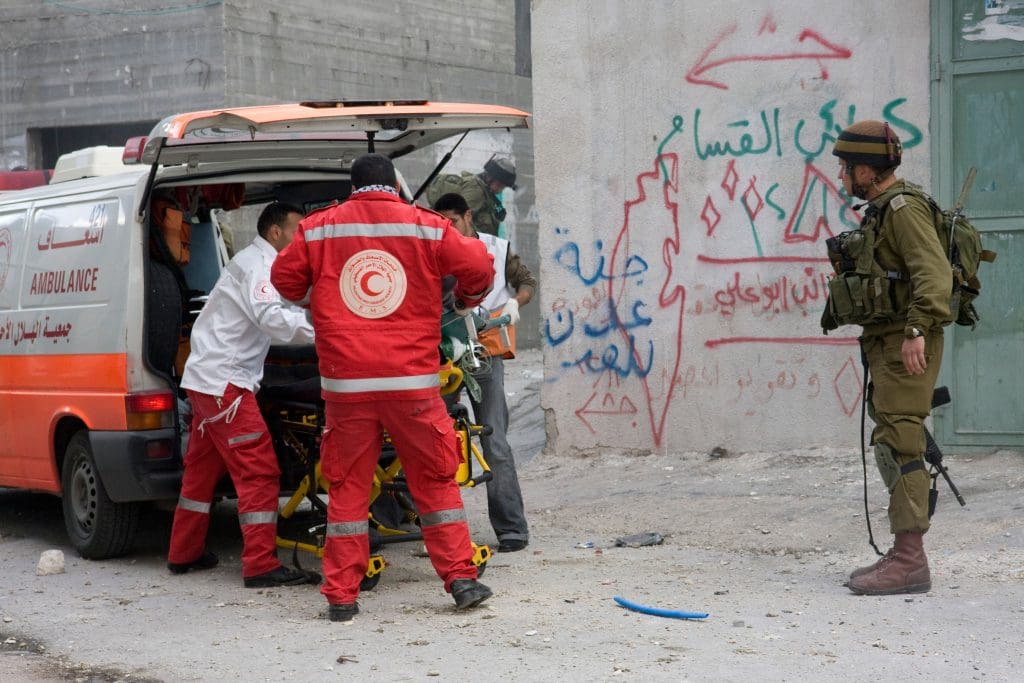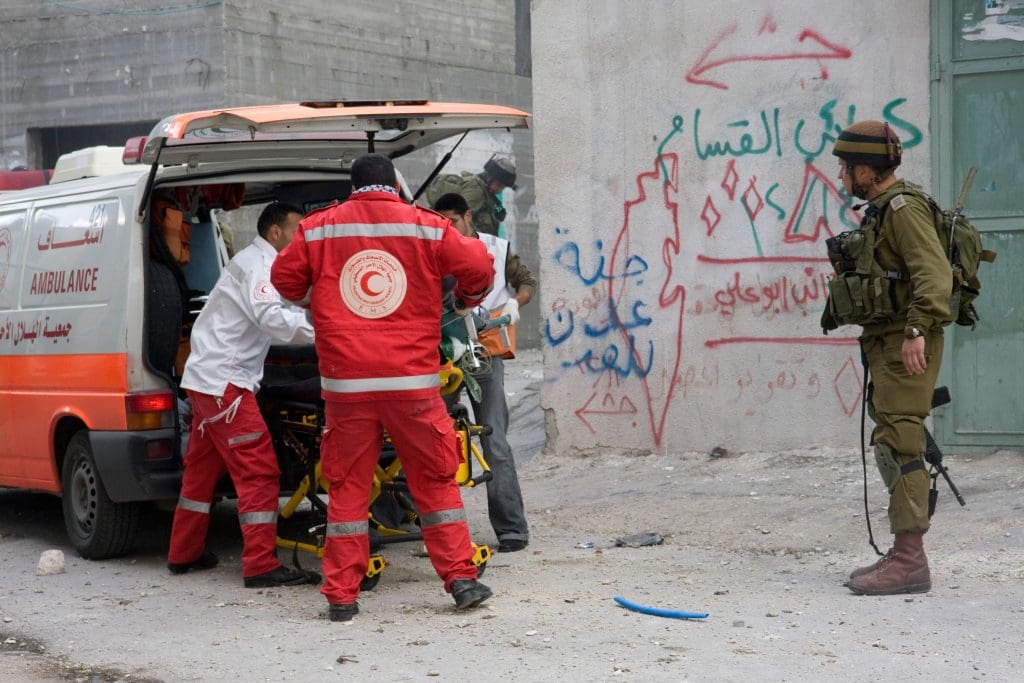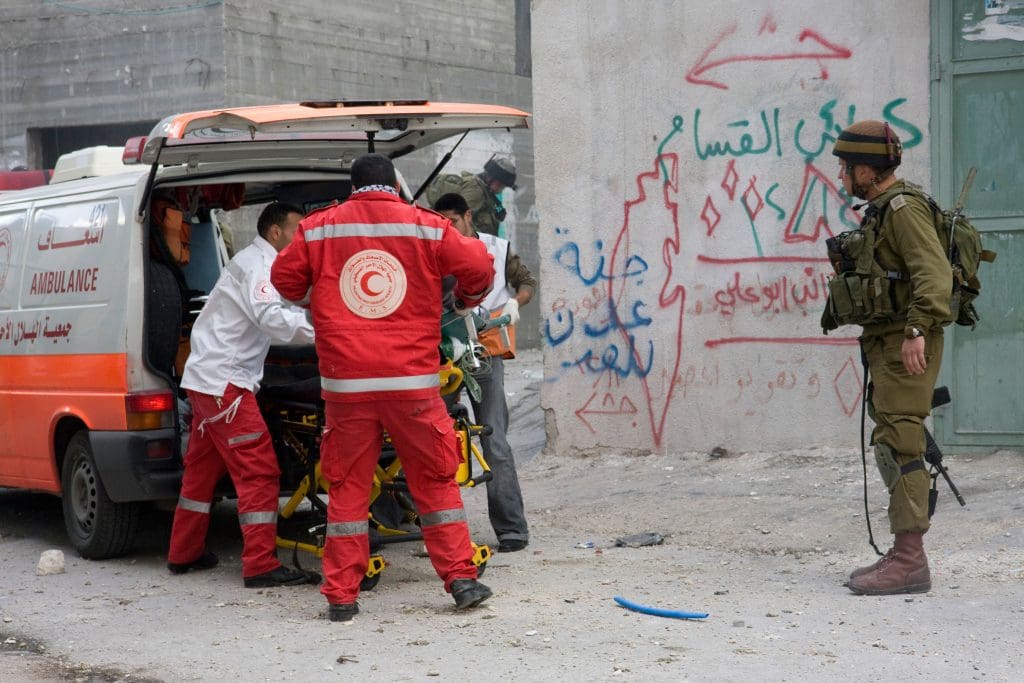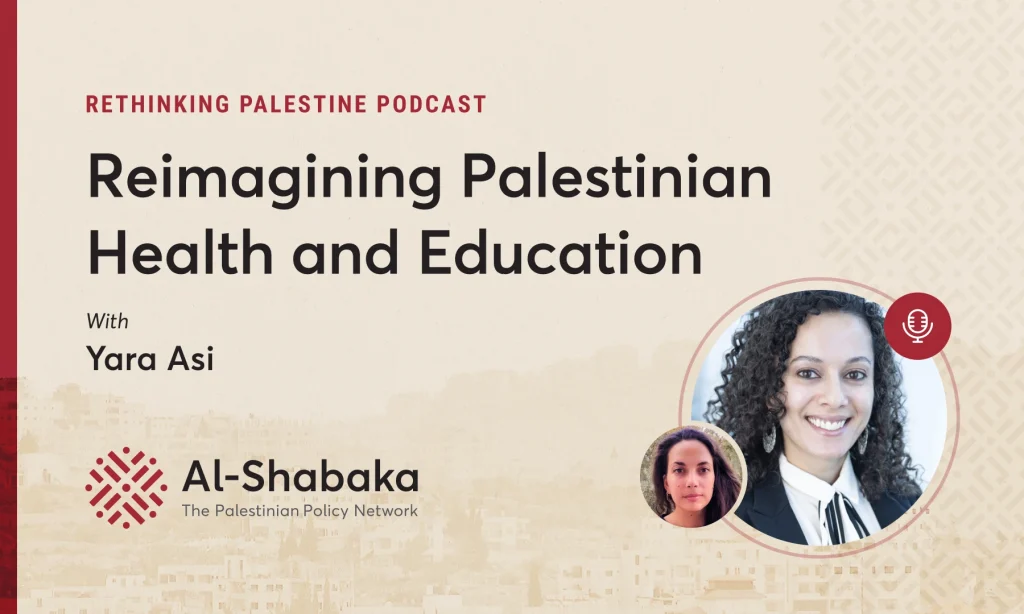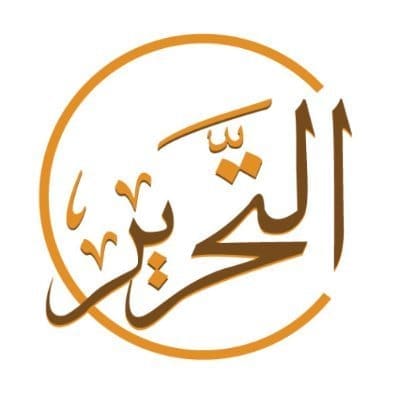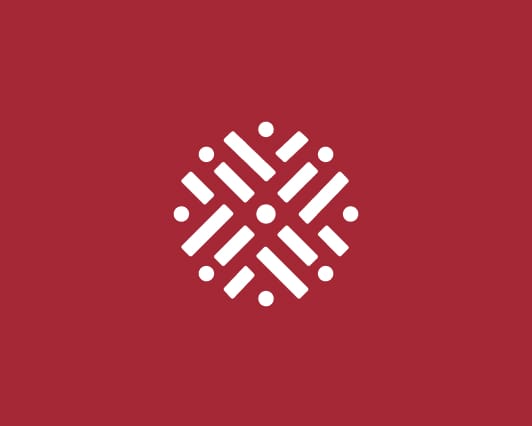Dr. Yara M. Asi is an Assistant Professor at the University of Central Florida in the School of Global Health Management and Informatics. Her research agenda focuses on global health, human rights, and development in fragile populations. She is a Non-resident Fellow at the Arab Center Washington DC, a 2020-2021 Fulbright US Scholar to the West Bank, the Fall 2021 US Fellow at Al Shabaka Palestinian Policy Network, and the co-chair of the Palestine Health Justice Working Group in the American Public Health Association. Along with working at one of the first accountable care organizations in the United States, she has also worked with Amnesty International USA and the Palestinian American Research Center on policy and outreach issues. She has presented at multiple national and international conferences on topics related to global health, food security, health informatics, and women in healthcare, and has published extensively on health and well-being in fragile and conflict-affected populations in journal articles and book chapters. Her work has also been featured in The Washington Post, The Guardian, The Nation, +972 Magazine, The Conversation, Al Jazeera, The World, and other outlets. Her forthcoming book with Johns Hopkins University Press will examine war as a public health crisis.
From this author
In March, Israel shattered the ceasefire in Gaza by resuming its bombing campaign at full force and enforcing a total blockade on humanitarian aid—ushering in a new phase of the ongoing genocide. In response to mounting international criticism, the Israeli regime introduced a tightly controlled aid scheme designed not to alleviate suffering, but to obscure its use of starvation as a weapon of collective punishment. Through the so-called Gaza Humanitarian Foundation (GHF), Israel has transformed humanitarian aid into a tool of control, coercion, and forced displacement.
Israeli forces have additionally blocked UN and other aid agencies from accessing over 400 distribution points they once operated throughout Gaza. They consequently forced two million Palestinians to rely on just four GHF sites, most near its southern border in what appears to be a deliberate effort to push mass displacement toward Egypt. Investigations have also revealed how US-based private contractors are actively profiting from the GHF’s deadly operations.
In this policy lab, Yara Asi and Alex Feagans join host Tariq Kenney-Shawa to discuss how the GHF fits into Israel’s genocidal strategy—and to expose the network of individuals and companies profiting from what has been a death trap masquerading as humanitarian assistance.


In this policy lab, Yara Asi and Layth Hanbali join host Tariq Kenney-Shawa to discuss Israel’s systematic assault on civilian infrastructure across Gaza and efforts to survive and rebuild against all odds.


As the Israeli regime continues its genocidal campaign against Palestinians in Gaza, many have begun to weigh in on the future of Hamas and of Palestinian leadership more broadly once the bombardment ends. One of the dominant proposals is the revival of the Palestine Liberation Organization (PLO), with Hamas as a member party.
But revival of the PLO requires more than bringing Hamas into the fold, as the Fatah-controlled PA has effectively whittled down the PLO to a barren institution. What then, beyond inclusion, is needed in order to resuscitate the viability of the PLO? In an effort to strengthen the generative thinking around these questions, Al-Shabaka revisits a collection of its past works that sought to confront this very topic.
In this Focus On, Al-Shabaka’s policy analysts imagine Palestinian political futures within the context of historical and ongoing realities. Among other topics, they revisit the history of popular committees and consensus-building efforts during the First Intifada to show how local Palestinian governance might be strengthened, and how we might rethink the meaning of self-determination from the grassroots. They consider how various aspects of Palestinian society, including health, education, and policing, could be transformed to help sustain a new political vision for liberation, and revive popular engagement in colonized Palestine and beyond. And they examine the different means through which Palestinians can utilize international legal avenues to strategize an effective anti-apartheid movement.
The process to reform the PLO as a genuinely representative body would be painstaking and difficult. However, assuming such a transition, many of the community-led efforts to address issues in health may be revitalized after years of co-optation by the rigid structures of the PA.

Yara Asi· May 24, 2023
A collapse of the PA, and by default, the MoH, would leave a vacuum not just in direct health provision, but also in the presence of a central body to which external aid for health-related matters is directed.

Yara Asi· May 24, 2023
A new popular Palestinian uprising would overwhelm an already suffering Palestinian health sector in the West Bank and Gaza. Furthermore, a new intifada would shift the Israeli and international community’s approach to Palestinians, restricting health providers’ capacities and access to desperately needed medical resources.

Yara Asi· May 24, 2023
The sudden death of President Mahmoud Abbas would likely cause a crisis in Palestinian governance that would have significant impacts on the health sector. Likewise, any new elections that result in a change in leadership would cause political and social instability. However, this is less likely due to the PA’s continued refusal to hold presidential and legislative elections.

Yara Asi· May 24, 2023
The four major components of the Palestinian health sector—the Palestinian Ministry of Health, UNRWA, NGOs, and the private sector — will continue to operate their often disparate services for Palestinians in the West Bank and Gaza. However, even if the status quo persists, significant disruptive impacts to Palestinian health may occur, especially through the NGO sector.

Yara Asi· May 24, 2023
Yara Asi joins host Yara Hawari to discuss the Palestinian health and education sectors within the context of the Palestinian struggle for liberation.











